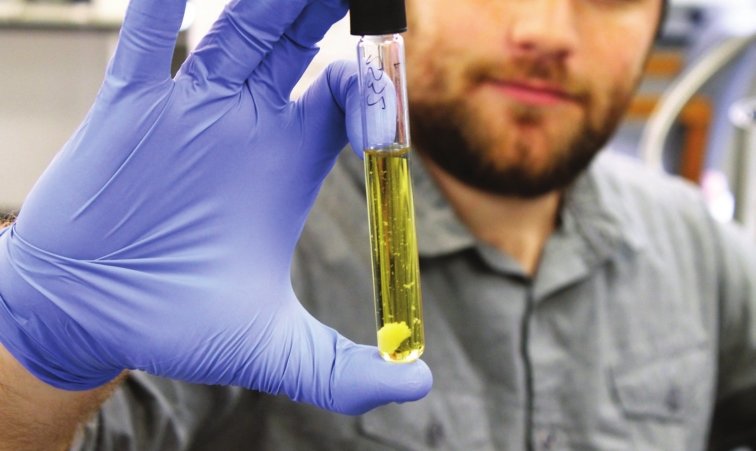
It is there that ACT Labs conducts potency tests — just one of a battery of tests the company plans to offer once Michigan formally adopts the testing standards for medical marijuana required under legislation adopted last month. The new rules and standards, as well as licensing, could take over a year to write and adopt.
Jake Idoni, the lab’s quality manager, is ready. He has a bachelor of science degree in both molecular genetics and microbiology and came to the marijuana testing industry from the food industry.
He outlined the five general tests that ACT Labs performs at its Illinois facility: Potency, pesticide screening, residual solvent, turpine and full microbial for several bacteria and fungi.
“Residual solvent is something that is found in extracts and sometimes edibles,” he said. He eagerly explains that the extraction process, which removes resins, uses ethanol alcohol to strip the plant material away. Once that is done, the extract has to be cleansed of the ethanol. “A lot of people don’t purge enough, so they end up with residual ethanol. If you do it poorly enough you can actually make rocket fuel.”
The microbial testing looks at bacterial contamination from several classes of common bacteria such as those found in the gut, or e. Coli, a toxic bacteria that causes stomach and gut infections; and even salmonella bacteria.
Turpine is a component of marijuana that Idoni said may have therapeutic properties, “but no one knows for sure, although there are some promising studies.”
Potency tests for the chemicals most often associated with marijuana’s medicinal properties, cannabinoids and THC. The lab conducts just this test in Lansing for $40. The cost of the entire battery is $350 in Illinois, he said. The Lansing lab runs about 25 potency tests every week, while in Illinois they do 75 full tests a week. The test can detect how much of a certain substance is present in a sample by subjecting it to a gas or liquid chromatography test.
Idoni explained that a lab computer measures the molecular size and weight of chemicals as they seep through a filter. From that it can calculate the amount of a tested substance in a given sample. The computer generates a graph showing the various components. And how much of each, he said, can also indicate whether a plant has been harvested too early, too late or just on time.
Support City Pulse - Donate Today!
Comments
No comments on this item Please log in to comment by clicking here